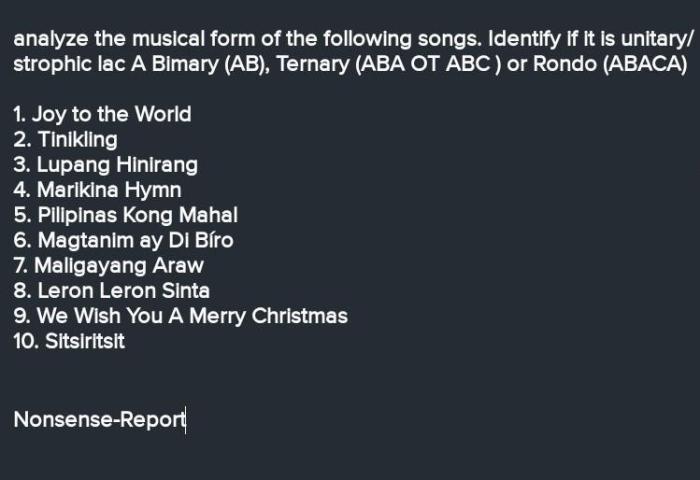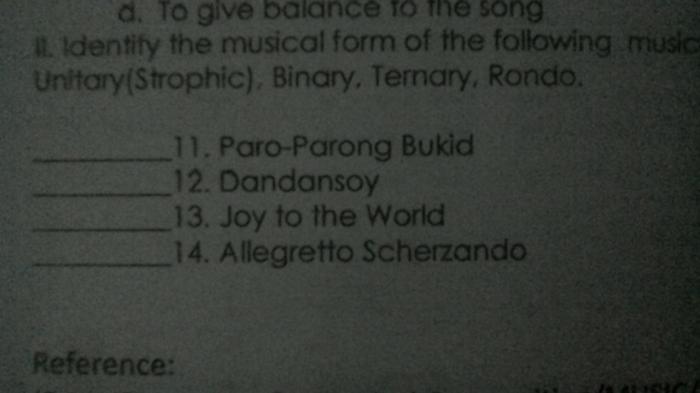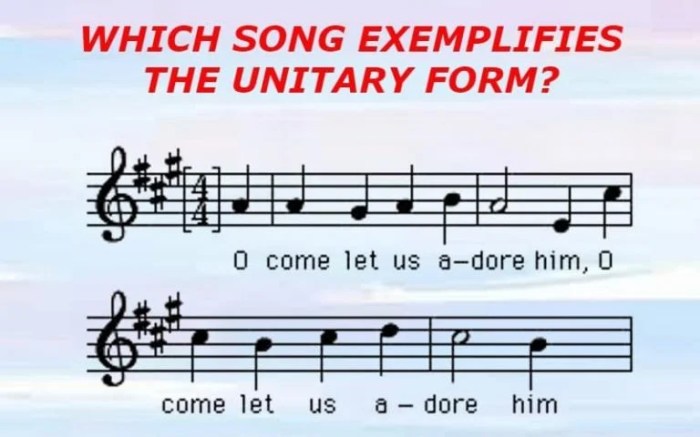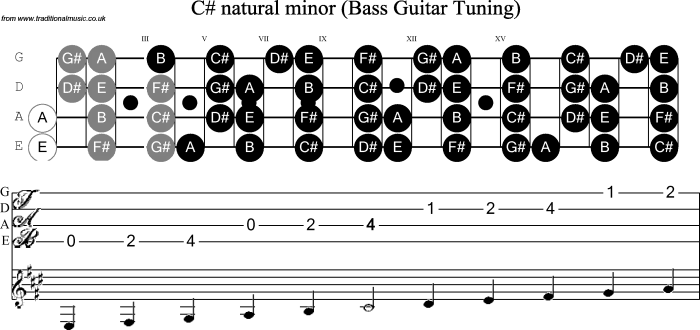The following musical excerpt represents strophic form. – The following musical excerpt represents strophic form, a fundamental musical structure that has shaped countless songs across genres. This form is characterized by the repetition of verses with the same melody and chord progression, creating a sense of unity and familiarity.
From pop to classical music, strophic form has played a vital role in the development of memorable and enduring melodies.
In this exploration, we will delve into the intricacies of strophic form, examining its key elements, variations, and applications in different musical genres. We will also discuss the advantages and disadvantages of using this form, exploring how notable composers have employed it to create iconic and impactful works.
Definition of Strophic Form: The Following Musical Excerpt Represents Strophic Form.

Strophic form is a musical structure in which the same music is repeated for each verse of a song. The lyrics may change from verse to verse, but the melody, harmony, and rhythm remain the same. This form is often used in folk songs, hymns, and popular music.
Elements of Strophic Form, The following musical excerpt represents strophic form.
- Melody:The melody of a strophic song is typically simple and repetitive, making it easy to sing and remember.
- Harmony:The harmony of a strophic song is also usually simple, with a few basic chords repeated throughout the song.
- Rhythm:The rhythm of a strophic song is typically regular and straightforward, with a steady beat.
Variations of Strophic Form
- Verse-chorus form:This is the most common variation of strophic form, in which the verses are followed by a chorus that repeats the same music and lyrics.
- Verse-bridge-chorus form:This variation of strophic form includes a bridge section that provides a contrasting melody and lyrics.
Strophic Form in Different Musical Genres
Strophic form is used in a wide variety of musical genres, including:
- Pop music:Strophic form is often used in pop songs, as it provides a simple and catchy structure that is easy to remember and sing along to.
- Rock music:Strophic form is also used in rock music, although it is often combined with other musical elements, such as solos and extended instrumental sections.
- Folk music:Strophic form is a common feature of folk songs, as it provides a simple and effective way to tell a story.
- Classical music:Strophic form is also used in some classical music, such as hymns and choral pieces.
Advantages and Disadvantages of Strophic Form
Advantages of strophic form:
- It is simple and easy to remember.
- It provides a strong sense of unity and coherence.
- It can be used to create a variety of different moods and atmospheres.
Disadvantages of strophic form:
- It can become repetitive and boring if not used carefully.
- It can limit the composer’s ability to develop and vary the music.
Notable Composers and Strophic Form
Many notable composers have used strophic form in their works, including:
- Franz Schubert:Schubert used strophic form in many of his songs, including “Ave Maria” and “Gretchen am Spinnrade.”
- Robert Schumann:Schumann also used strophic form in many of his songs, including “Die Lotosblume” and “Ich grolle nicht.”
- Johannes Brahms:Brahms used strophic form in some of his choral works, such as “Nänie” and “Schicksalslied.”
Key Questions Answered
What is the main characteristic of strophic form?
The main characteristic of strophic form is the repetition of verses with the same melody and chord progression.
What are some examples of songs that use strophic form?
Some examples of songs that use strophic form include “Twinkle Twinkle Little Star,” “Happy Birthday,” and “Amazing Grace.”
What are the different variations of strophic form?
The different variations of strophic form include verse-chorus form and verse-bridge-chorus form.
What are the advantages of using strophic form?
The advantages of using strophic form include simplicity, memorability, and emotional impact.
What are the disadvantages of using strophic form?
The disadvantages of using strophic form include potential monotony and lack of musical development.


